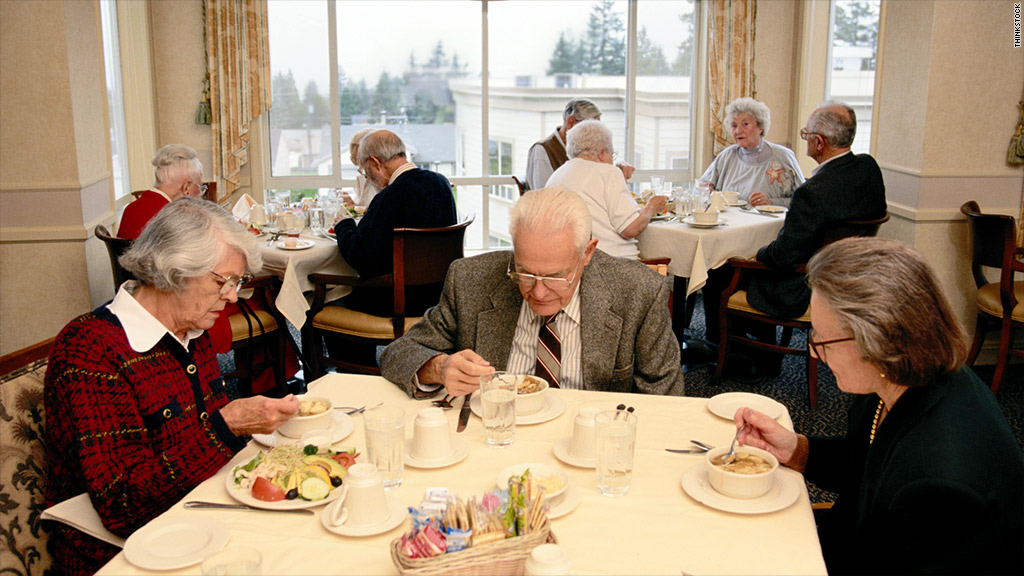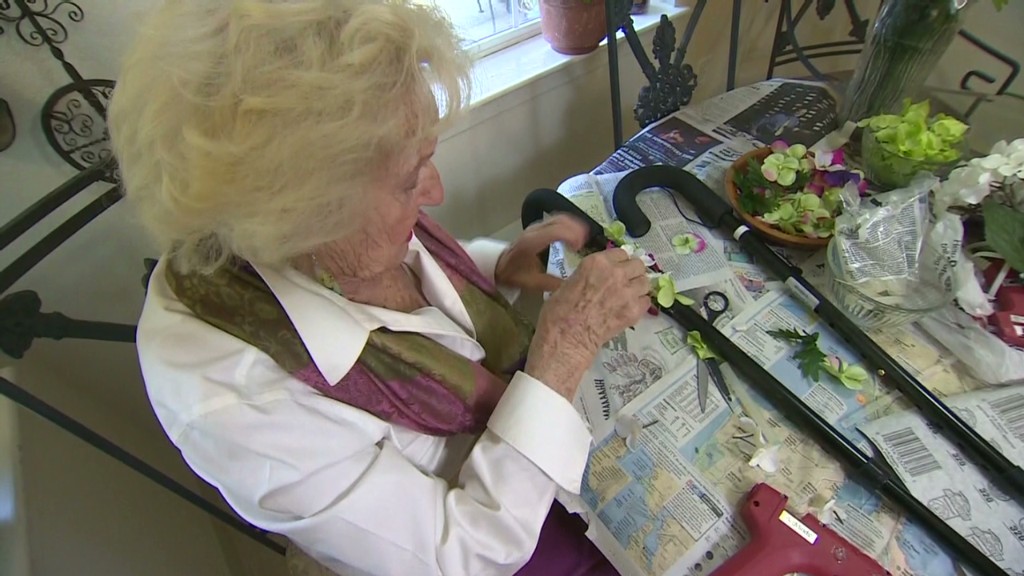
The cost of living at a nursing home has soared to a new high of more than $80,000 per year.
Over the past five years, the median annual cost of private nursing home care has jumped 24% from $67,527 to $83,950, according to Genworth's 2013 Cost of Care Survey, based on data from nearly 15,000 long-term care providers. From 2012 to 2013 alone, the price climbed 4%.
A combination of factors are pushing costs higher, said Bob Bua, vice president of Genworth. Expenses like insurance, food, building maintenance and labor costs are all going up and being passed along to customers as a result.
"[Nursing home employees] rarely get pay decreases, food rarely costs less, rent rarely goes down -- it's an ever-increasing cycle," Bua said.
It's not much cheaper for a semi-private room at a nursing home, where space is shared with at least one other person. This rings up at a median $75,405 per year -- up 23% from five years ago.
Related: Talking money with your aging parents
A less expensive alternative to nursing homes are assisted living facilities because they don't offer the same level of care, but these are also seeing significant price increases from year-to-year. The median annual cost of care in an assisted living facility is $41,400, up nearly 5% from last year and 23% higher than five years ago, Genworth found.
The cost of at-home care, such as home health aides or homemakers, is rising at a much slower pace.

Hiring a homemaker, who typically assists seniors with cleaning, cooking and transportation, currently costs a median $41,756 per year -- up just 1% from last year and a mere 4% increase from five years ago. Home health aides, who provide more hands-on care like bathing and grooming, cost $44,479 per year -- up 5% from five years ago.
Related: Why Grandma's aide earns so little
At-home care is also the most attractive option for many seniors. A separate Genworth study found that 78% of respondents would prefer to receive care in their own homes rather than go to a nursing home or assisted living facility.
Competition among home care providers to meet this high demand is keeping prices competitive, said Bua. In fact, home health aides are now the fastest growing job in the country, according to the Labor Department.
"There's so much competition in the home care arena that prices stay low -- you can vote with your feet," he said.


